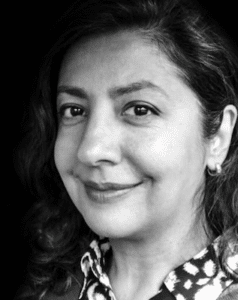
The Persian Gulf remains tense as the rivalry between the regional powers of Saudi Arabia and Iran continues. Tensions escalated in early 2020 as the United States began to intervene in the Gulf, launching an airstrike that killed two Iranian military commanders. What are the historical influences that have led to these tensions? What role, if any, should the United States play? Is using military force a viable foreign policy option for 2021 and beyond?

Banafsheh Keynoush, PhD, is a scholar of international affairs. An academic for over thirteen years, she has conducted fieldwork in the Middle East for two decades, including in Saudi Arabia and Iran, was a visiting scholar at Princeton University, and a visiting fellow at the King Faisal Center for Research and Islamic Studies. The author of Saudi Arabia and Iran: Friends or Foes? (New York: Palgrave Macmillan, 2016), she is the editor of Iran’s Interregional Dynamics in the Near East (New York: Peter Lang, 2021). Her other publications include articles published in academic journals, policy papers, and media reports. In addition, she is the translator and editor of Refugee Rights in Iran written by Nobel Laureate Shirin Ebadi (London: Saqi, 2008), and the editor of five volumes of Persian poetry entitled the Five Treasures of Ferdowsi (Tehran: Iranian Calligraphy Society, 1999).
Keynoush is the President of the geopolitical consulting firm MidEast Analysts, a fellow at the International Institute for Iranian Studies, a team member at the Carnegie-funded Sectarianism, Proxies and De-sectarianisation Project, and Co-Chair of the Middle East Forum at the Commonwealth Club of California. In addition to her career in academia, her professional experiences include advisory, public affairs, and analytical work for government agencies, international organizations, policy centers, and private companies across a multitude of sectors. Prior to this, she was a consultant at the World Bank, the Swiss Academy for Development, and worked at The Asia Foundation. An accredited senior free-lance translator, and consecutive and simultaneous interpreter at the European Commission, she offered language services to hundreds of UN conferences, major and dual track peace talks, world leaders and heads of states in Europe, Asia, Africa and the Americas, two UN Secretary Generals, five Nobel Laureates, and interpreted several press conferences and UN speeches by Afghanistan’s, Iran’s and Tajikistan’s presidents. She was Nobel Laureate Shirin Ebadi’s chief interpreter and her agent from 2003 to 2010, and before then, an interpreter at the U.S.-Iran Claims Tribunal in The Hague from 1997 to 2003. She received her Ph.D. from The Fletcher School of Law and Diplomacy at Tufts University, and completed her coursework at The John F. Kennedy School of Government at Harvard University.
Keynoush has lived and worked in more than 42 countries, and is a San Francisco resident. She raises a Jewish-Muslim household whose members have Bar Mitzvahs and perform the Hajj. She received scholarships in the United States to attend Fletcher and Harvard for her master’s degree in 1997-1999, and to obtain a Ph.D. in 2007, and spent her formative years in the country on the East Coast, including in Martha’s Vineyard with her in-laws who were renowned artists. As a child, she made one unsuccessful attempt to flee home at the age of 8, and grew up partly under the protection of her grandparents. They came from a line of foreign service officers who established Iran’s modern Ministry of Foreign Affairs. Her paternal grandfather was called the real foreign minister of Iran before the revolution. The recipient of four medals of honor for service to his country, he controlled the ministry’s budget, approved allocations to embassies abroad, and ensured anti-corruption practices. She sometimes traveled with him when he went to inspect Iran’s embassies abroad, went to his office in Tehran, sat in his meetings when ambassadors came for visits, or spent time in his opium den where close colleagues came to talk politics. Her maternal grandfather was one of the early recruits of the foreign ministry at a time when it did not have a building, and set up office tents and sleeping quarters for its staff on the Sa’adabad Palace grounds during the reign of Reza Khan. In the following years, as a diplomat in the Arab world, he drove his children and grandchildren on a rotational basis (given his large family) on annual trips to the Middle East including Israel. Her paternal grandmother was Iran’s first female high school principal, her paternal step-grandmother often took care of her as a child, and her maternal grandmother and aunt took care of her in her high school years.

Footer Form
